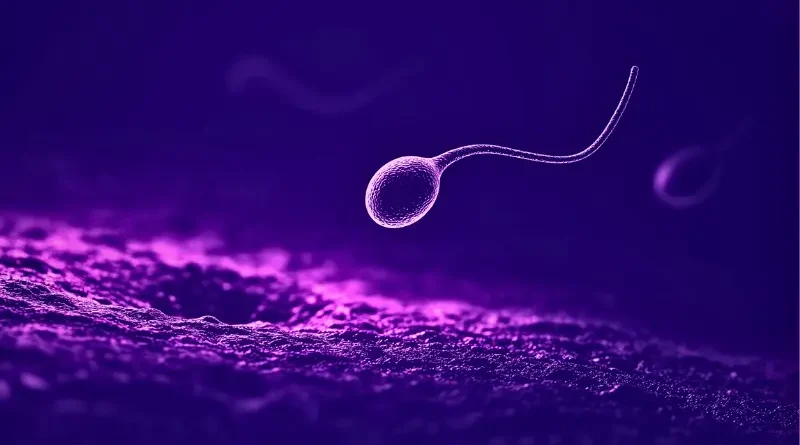How Summers Affect Sperm Health & Male Fertility
As temperatures rise during the summer months, many people focus on staying cool and hydrated. However, what often goes unnoticed is how excessive heat can impact male fertility. The testicles need to remain cooler than the body’s core temperature to produce healthy sperm, and prolonged exposure to summer heat can impair sperm quality, count, and motility. In addition to heat exposure, summer habits like dehydration, tight clothing and alcohol consumption, can also contribute to reduced sperm health. Understanding these factors and taking preventive measures can help maintain optimal fertility.
In this article, we will explore:
✅ How heat affects sperm production
✅ Common summer factors that harm sperm health
✅ Symptoms of heat-induced sperm damage
✅ Ways to protect sperm health during summer
How Heat Affects Sperm Production
The ideal temperature for sperm production is about 2-4°C lower than body temperature (37°C/98.6°F). The testicles are located outside the body in the scrotum precisely for this reason—they need to stay cool to facilitate healthy spermatogenesis (sperm production).
However, during the summer months, excessive heat exposure can:
- Reduce sperm count – High temperatures slow down sperm production, leading to oligospermia (low sperm count).
- Decrease sperm motility – Sperm may become sluggish and less capable of reaching the egg for fertilization.
- Increase sperm DNA fragmentation – Heat stress can damage sperm DNA, reducing fertility and embryo development potential.
- Alter hormone levels – Elevated temperatures may disrupt testosterone production, affecting overall sperm quality.
(Source: World Health Organization (WHO))
Common Summer Factors That Harm Sperm Health
1. Hot Weather & Increased Body Temperature
Summer brings rising temperatures, and excessive heat exposure can negatively impact sperm production. When the testicles overheat for prolonged periods, sperm development is hindered.
How to Reduce Heat Exposure?
✅ Avoid staying outdoors for too long in direct sunlight.
✅ Wear light, breathable fabrics (cotton or linen) instead of synthetic materials.
✅ Stay in air-conditioned or shaded areas when temperatures soar.
2. Tight Clothing & Synthetic Fabrics
Many men wear tight underwear, synthetic gym shorts, or compression pants during summer workouts. However, these materials trap heat, raising scrotal temperature and impacting sperm production.
What’s the Best Clothing for Sperm Health?
✅ Wear loose-fitting boxers instead of tight briefs.
✅ Opt for moisture-wicking cotton underwear over synthetic fabrics.
✅ Choose loose pants or shorts to allow proper airflow.
3. Dehydration & Poor Hydration
Summer heat increases sweating and water loss, leading to dehydration, which can negatively impact semen volume and sperm motility.
How Dehydration Affects Sperm Health?
- Reduces semen volume – A dehydrated body produces less seminal fluid, leading to lower sperm concentration.
- Thickens semen – Makes it harder for sperm to move efficiently.
Hydration Tips for Better Sperm Health
✅ Drink 2-3 liters of water daily to stay hydrated.
✅ Consume electrolyte-rich fluids like coconut water.
✅ Reduce intake of caffeinated and sugary drinks that dehydrate the body.
(Source: National Institute of Health (NIH))
4. Increased Alcohol Consumption During Summer
Summers bring vacations, beach parties, and BBQs, leading to higher alcohol consumption. While occasional drinking is fine, excessive alcohol intake can harm sperm health.
How Alcohol Affects Sperm?
- Lowers testosterone levels, reducing sperm production.
- Increases oxidative stress, leading to sperm DNA damage.
- Causes dehydration, lowering semen volume and sperm motility.
How to Minimize Alcohol’s Impact?
✅ Limit alcohol intake to 1-2 drinks per occasion.
✅ Stay hydrated by alternating alcoholic drinks with water.
✅ Choose low-alcohol or non-alcoholic beverages to reduce sperm damage.
(Source: Cleveland Clinic)
5. Excessive Physical Activity in the Heat
While exercise is essential for overall health, intense outdoor workouts in extreme summer heat can overheat the testicles, reducing sperm production.
How to Exercise Without Harming Sperm Health?
✅ Exercise indoors or during cooler hours (early morning or late evening).
✅ Take breaks in the shade and stay hydrated.
✅ Avoid wearing tight workout clothes that trap heat.
(Source: European Society of Human Reproduction and Embryology (ESHRE))
6. UV Radiation & Oxidative Stress
Excessive sun exposure increases oxidative stress, leading to DNA fragmentation in sperm.
How to Reduce UV-Induced Sperm Damage?
✅ Use sunscreen and wear a hat when exposed to direct sunlight.
✅ Consume antioxidant-rich foods (Vitamin C, Vitamin E, Zinc, Selenium) to combat oxidative stress.
(Source: Journal of Human Reproductive Sciences)
Symptoms of Heat-Induced Sperm Damage
Men experiencing heat-related sperm health issues may notice:
🔹 Reduced semen volume
🔹 Sluggish or decreased sperm motility
🔹 Thicker or discolored semen
🔹 Increased scrotal discomfort or excessive sweating
If you notice these symptoms, consider adjusting your habits or consulting a fertility specialist.
(Source: Johns Hopkins Medicine)
How to Protect Sperm Health During Summer
1. Stay Hydrated
- Drink plenty of water to maintain healthy semen volume.
- Consume hydrating foods like watermelon, cucumbers, and oranges.
2. Choose the Right Clothing
- Wear loose, breathable boxers instead of tight briefs.
- Opt for light-colored fabrics to reflect heat.
3. Reduce Heat Exposure
- Stay indoors during peak heat hours (12 PM – 4 PM).
- Use cold showers to regulate body temperature.
4. Improve Your Diet
- Eat antioxidant-rich foods like berries, nuts, and leafy greens.
- Include Omega-3-rich foods (salmon, flaxseeds) to boost sperm health.
5. Limit Alcohol & Junk Food
- Cut down on beer, sugary cocktails, and processed foods.
- Choose healthy, whole foods to improve reproductive function.
(Source: Fertility and Sterility Journal)
Conclusion
While summer brings sunshine and fun, it also poses risks to male fertility due to heat exposure, dehydration, alcohol consumption, and poor lifestyle choices. Taking preventive measures, such as staying hydrated, avoiding excessive heat, eating a fertility-friendly diet, and limiting alcohol intake, can help protect sperm health.
If you’re planning for a baby and concerned about sperm health, consider consulting a fertility specialist for a comprehensive semen analysis and expert guidance.
